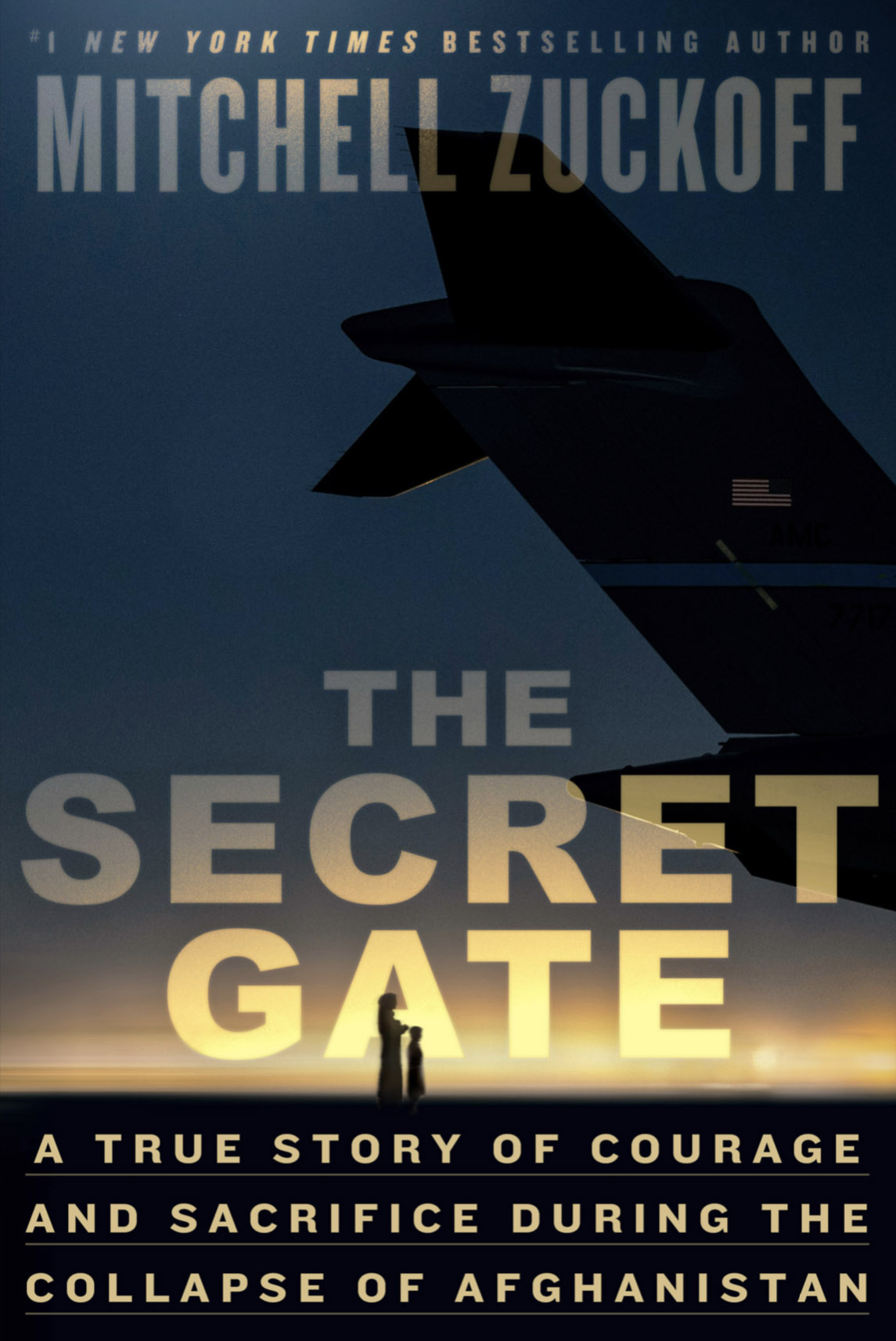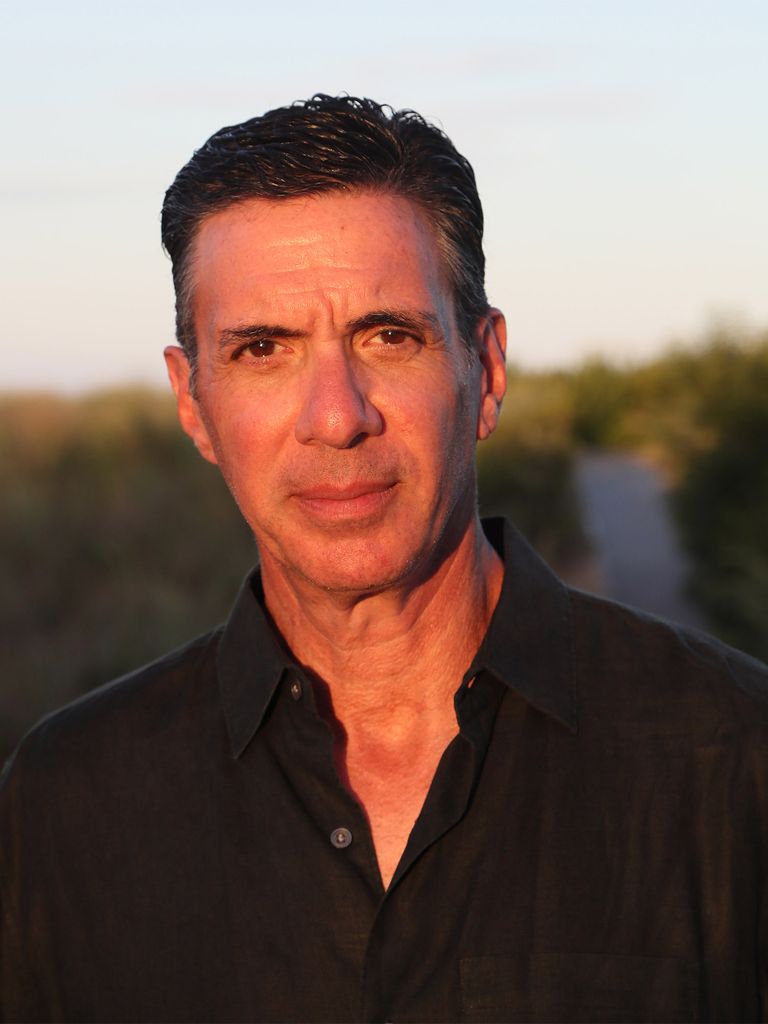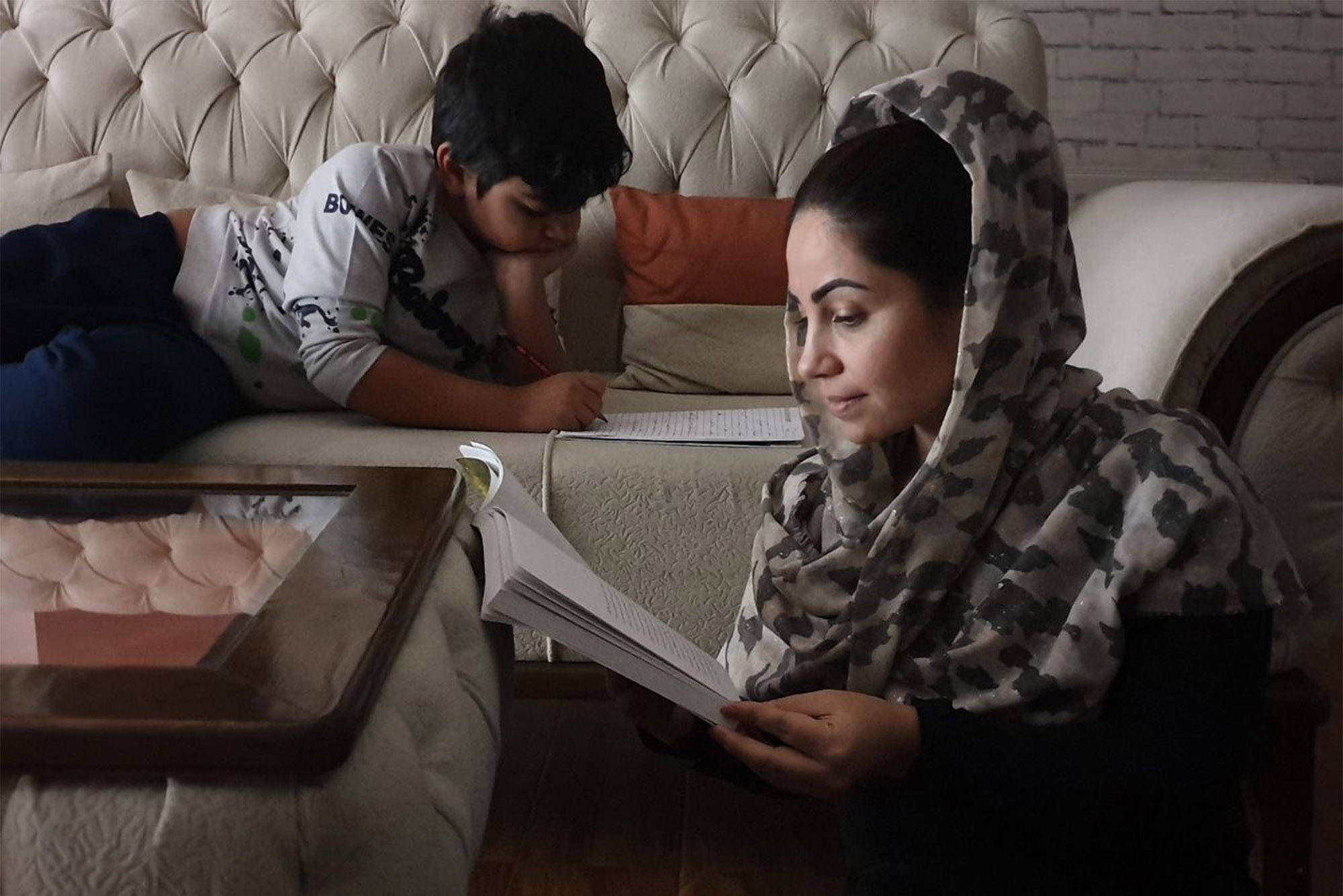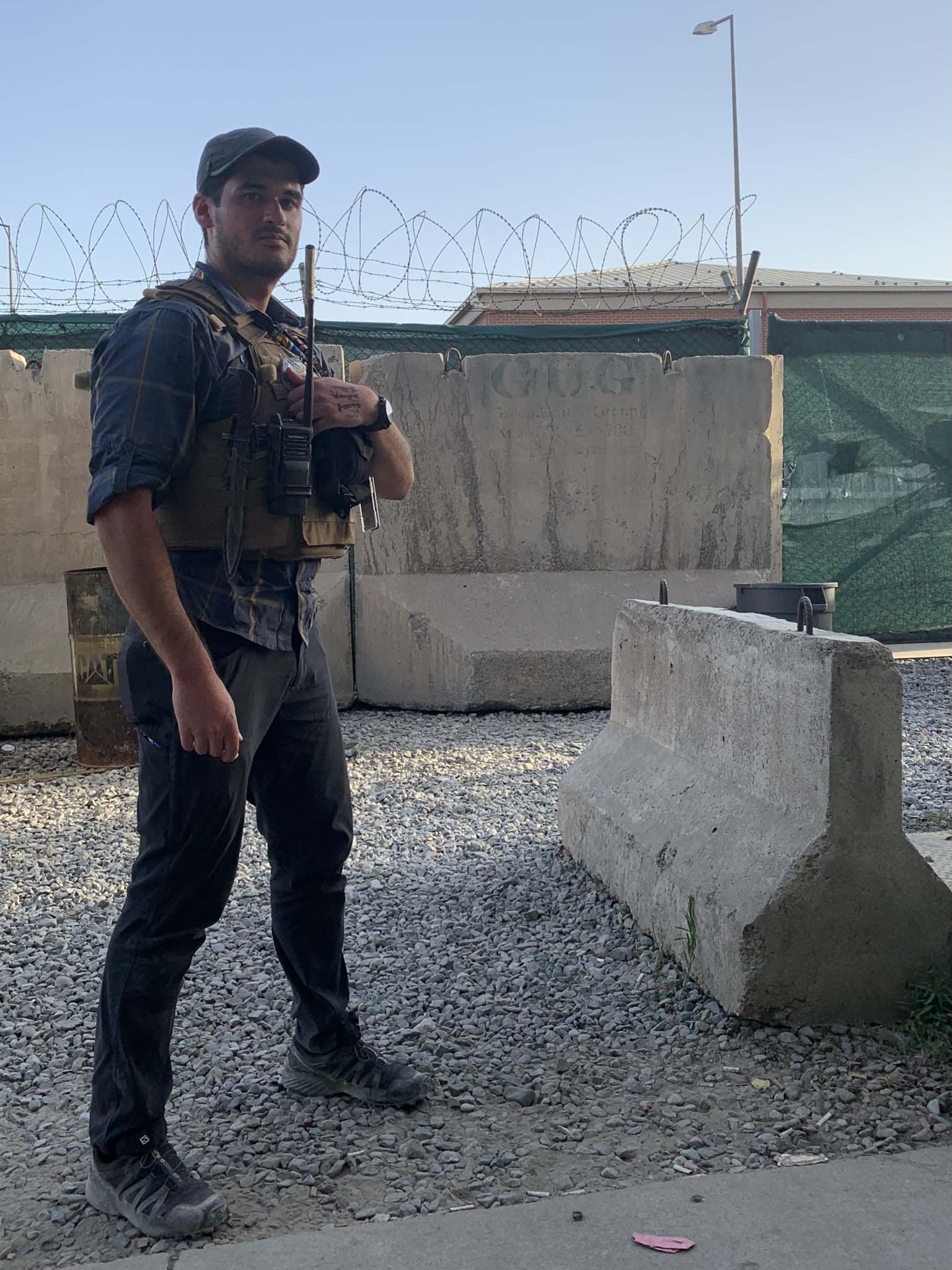COM’s Mitchell Zuckoff Re-creates a Suspenseful Story from the Chaotic US Withdrawal from Afghanistan

Photos and cover courtesy of Mitchell Zuckoff
COM’s Mitchell Zuckoff Re-creates a Suspenseful Story from the Chaotic US Withdrawal from Afghanistan
In his new book, The Secret Gate, best-selling author tells the tale of an American, an Afghan, and Kabul’s last days before the Taliban returned
Americans who were shamed or traumatized by our tumultuous Afghanistan pullout in 2021 are duly warned about Mitchell Zuckoff’s new book, The Secret Gate (Penguin/Random House). In granular detail, Zuckoff, Sumner M. Redstone Professor in Narrative Studies at the College of Communication, re-creates the collapse of the US-backed Afghan government and the desperate stampede out by America’s Afghan allies.

Among those weighing whether to flee the victorious, vengeful Taliban regime was Homeira Qaderi, a full-throated spokeswoman for women’s rights whose feminist memoir, Dancing in the Mosque, enraged traditionalists with its very title. Circumstance braided her fate with that of Sam Aronson, an idealistic American diplomat and volunteer in evacuating Afghans who’d helped the United States. The book is both a thriller about whether Qaderi will survive and a reflection on our debt to allies after America’s longest-ever, 20-year war.
Zuckoff, author of four New York Times bestsellers, including Fall and Rise: The Story of 9/11, had a storied journalism career before BU, including as a Pulitzer finalist while a special projects reporter at the Boston Globe. He discusses researching the new book and how it affected his thoughts about what we did and failed to do in Afghanistan.
Q&A
With Mitchell Zuckoff
BU Today: How did you learn of Homeira and Sam’s story, and how did you go about researching the book?
Zuckoff: During the chaotic withdrawal of American forces and diplomats, an informal, international group formed with the goal of evacuating Homeira Qaderi. The consensus was that Homeira would be targeted for death by the Taliban for her outspoken criticism of the treatment of women by fundamentalists. A key member of the “Save Homeira” effort was an American literary agent named Marly Rusoff, who tried everything she could think of to arrange an exit from Kabul for Homeira and her son, Siawash. Eventually Marly reached out to her college boyfriend from decades earlier, who’d been an ambassador under President Obama. Through a series of strange coincidences and luck, Marly’s pleas reached a young State Department official at the Kabul Airport named Sam Aronson.
Being a literary agent, Marly knew that Homeira and Sam’s story was extraordinary, and in late 2021, she was casting around for an author who might be a good fit to tell it. In a stroke of good fortune for me, one of Marly’s closest friends is my former editor, Claire Wachtel. Claire connected us, and I got right to work.
I devoted a tremendous amount of time to interviewing Sam and Homeira, both of whom are extremely smart and capable of recalling precise details of events, conversations, feelings—you name it. The interviews with Homeira were a bit unusual, in part because I asked questions in English and she responded in her native Farsi, which I then sent to a translator and transcriptionist. Then I’d follow up with more questions, and the process began again. It slowed the work, but the approach allowed her to speak more fluently and expressively than she could have in English, which resulted in richer material for me to use when writing.

BU Today: Which scenes or anecdotes in the book have most stayed with you?
Zuckoff: This is such a hard question, because the book is overwhelmingly devoted to scenes of Sam and Homeira’s last days in Kabul in August 2021. Probably the most memorable scene involves the two of them together at the CIA’s “Glory Gate.” It’s contained in the climactic chapter, so I’d rather let readers discover that for themselves.
Other than that, I get emotional whenever I think about Homeira’s decision to leave her apartment on August 15, the day the Taliban returned to Kabul. She had vivid, painful memories of the first Taliban regime two decades earlier, and she never expected to see them again in person, certainly not in the city she loved and where she’d rebuilt her life. When she saw them driving past, the reality overwhelmed her, and she passed out on the street near Kabul University. When she woke, she knew her world had changed completely.
As for Sam, shortly after he started rescuing people at the CIA’s secret back door to the Kabul Airport, he exposed himself to danger to grab the sister and niece of his translator and pull them to safety. That was the moment, I think, that Sam knew there was no turning back. He understood that he needed to do everything in his power to help as many endangered people as he could.
BU Today: Has writing this book changed your views about our decision to invade, and our decision to withdraw? Homeira makes clear her feeling that the withdrawal betrayed her people, but after 20 years of war, is that fair?
Zuckoff: This is a big question, but in short, nothing I’ve learned has changed my belief that the United States needed to invade in 2001 to oust the Taliban, which was sheltering the al-Qaeda terrorist leaders who’d planned the 9/11 attacks. My previous book, Fall and Rise, was about 9/11, and I wrote the lead news story about the attacks as a special projects reporter for the Boston Globe.
As for the withdrawal, I think there’s a reason that both Republican and Democratic administrations agreed that the American military presence needed to end after two decades. But I think it’s legitimate to condemn the Trump administration for the terms of the agreement to leave and its failure to include the Afghan government directly in those talks, and to criticize the Biden administration for the failures of planning and execution that contributed to the chaos of the actual withdrawal.
I would never challenge Homeira’s feelings, which I know are sincere and based on firsthand knowledge and experience. She heard 20 years of American statements about ensuring the rights of women and girls in Afghanistan, only to see the Taliban regain power and reinstate repressive, misogynistic policies. She has every right to her feelings.

BU Today: Did you sense a kindred soul in the well-traveled Sam?
I’d be flattering myself if I said yes! Sam is a terrific young man whom I admire greatly. What I will say is that I share Sam’s belief that it’s incumbent upon all of us to do what we can to help others, even if that involves personal and professional risk. I hope that if I had been at the Kabul Airport in August 2021, I would have shown even a fraction of Sam’s integrity and bravery.
BU Today: To a reader, Homeira’s initial refusal to flee seems patriotic and honorable, but also irresponsible, given that she has a young son depending on her, and the futility of stopping the Taliban is clear. How do you view her delay in leaving Afghanistan?
I’ve given this a great deal of thought. I admit that, at first, I didn’t fully understand her decision not to try to flee immediately. But the better I got to know her, the more I realized that she felt a legitimate, deep obligation to the women of Afghanistan to stay and fight. She also didn’t want to leave her extended family, who didn’t have an international coalition of supporters trying to help them to emigrate. Kabul was her entire world, the place where she planned to spend the rest of her days. She’d worked incredibly hard to buy a home, recover from a terrible divorce, regain custody of Siawash, and establish herself as a leading public voice for women’s rights. She never expected the Taliban to reach Kabul, or certainly not so quickly. Neither did the Afghan and US governments, for that matter. So, I think it makes perfect sense that it took a few days for her to accept that she needed to leave to save her son and herself.
It’s been a privilege to get to know Homeira and Sam. It should never have been necessary for Sam to volunteer to put himself in harm’s way and to take the risks he did to help others. Homeira should never have had to leave her homeland and her family. Both are incredible people whose actions deserve our attention and admiration. I’m deeply grateful they trusted me to tell their individual and shared stories, and I hope I did them justice.
Mitchell Zuckoff and Homeira Qaderi will discuss The Secret Gate at the Cambridge Public Library, 449 Broadway, on May 10 at 6 pm. RSVP here for the event, sponsored by the Harvard Book Store.

Comments & Discussion
Boston University moderates comments to facilitate an informed, substantive, civil conversation. Abusive, profane, self-promotional, misleading, incoherent or off-topic comments will be rejected. Moderators are staffed during regular business hours (EST) and can only accept comments written in English. Statistics or facts must include a citation or a link to the citation.